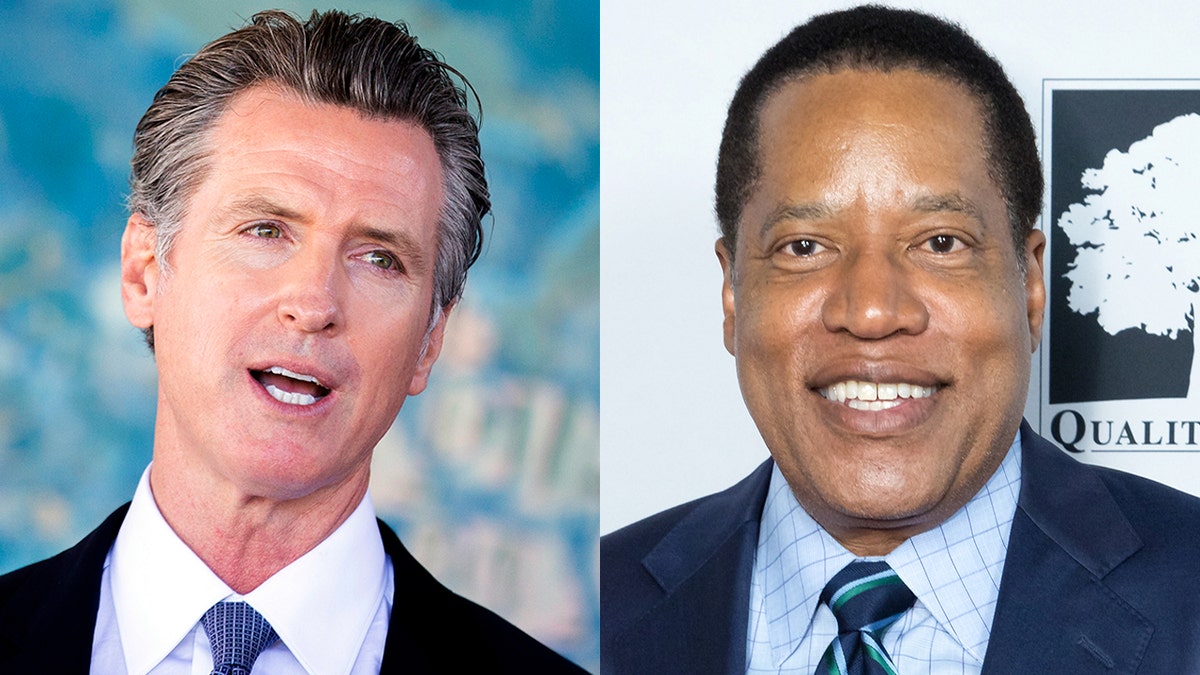Regardless of whether Gov. Gavin Newsom survives the Sept. 14 recall election, Democrats in the nation’s largest state are eying big changes to the recall system.
"I have talked to several key legislators who are ready to rip apart the recall process and put it back together," Garry South, a Democratic consultant and former senior political adviser to Gray Davis, the governor recalled in 2003, told Fox News. "Two of the last elected Democratic governors have been subjected to recall elections in the last 18 years."
Some of the changes under consideration include a malfeasance standard, hiking the number of signatures required to qualify a recall for the ballot, and requiring more signatures from the party of the official targeted for recall. State lawmakers have already considered bills that would ban paying people to gather signatures, one to require voters to read a list of a recall or referendum’s top contributors before signing a petition, and one allowing a politician facing a recall to also run as a replacement candidate.
BIDEN EXPECTED TO CAMPAIGN WITH NEWSOM NEXT WEEK, AHEAD OF CALIFORNIA RECALL ELECTION
If Newsom is recalled, conservative commentator Larry Elder leads among more than 40 replacement candidates – but has less than 30% in most polls. This could galvanize Democrats to push changes to the state constitution. California Secretary of State Shirley Weber, a Newsom appointee who supervises elections, has called for a higher signature threshold and questioned whether a candidate with less than a majority of the vote should be able to win.
Under current rules, South said, the recall law is more advantageous to Republicans.

California Democratic Gov. Gavin Newsom and candidate Larry Elder, who is the current Republican frontrunner in the upcoming recall election. (AP/Getty Images)
"This is not about the pandemic. This is not about homelessness. This is not about wildfires. This is not about The French Laundry," South said. "Republicans haven’t won a statewide election since 2006. Republicans can’t win statewide straight up, so they have to use recall as a crowbar to pry open the back door. We should not have recall elections 14 months from a scheduled gubernatorial election."
Beyond the recall, California is known for direct democracy through frequent ballot referendums, which have also occasionally irked Democrats with a two-thirds majority in the state legislature.
NEWSOM RALLY SPEAKER CALLS LARRY ELDER 'A BLACK FACE ON WHITE SUPREMACY'
"Democrats in the legislature, since they gained supermajority status, have unleashed an unrelenting assault on direct democracy," Jon Coupal, president of the Howard Jarvis Taxpayer Association, a conservative advocacy group, told Fox News. "The tools of direct democracy, put in place by an early progressive — Hiram Johnson — are a threat to the power structure and to an indolent legislature."
Johnson was the progressive Republican governor in 1911 who helped push the recall provision into the state constitution.
Narrowing the grounds for recall and increasing the number of signatures needed would only be a way to make it more difficult for citizens to hold public officials accountable, Coupal said.
"Liberals and conservatives both like the referendum and recall," Coupal said. "Even if they think the process is being abused, they won’t like a direct assault on it. Giving voters a choice is not a problem here. A lot of people are upset by the iron grip of one party."
AS BIDEN PUSHES GREEN CARS, ACTIVIST HAS LEAD ROLE IN HIGHWAY SAFETY AGENCY
A July poll by the Public Policy Institute of California found 86% of respondents support having the recall. But 60% back only allowing an official to be recalled because of illegal or unethical activity, and 55% support raising the bar for signatures from 12% of the voters that voted in the last election to 25%. Further, the poll found 68% support having a runoff between the top two if none of the replacement candidates get more than 50% of the vote.
The state should consider a bipartisan commission to determine recall reforms, said Mark Baldassare, president of the Public Policy Institute of California.
"Regardless of how [the recall election] turns out, it will take a lot of discussion and bipartisan support for changes," Baldassare told Fox News. "My understanding is that any substantive changes requires voter approval. We have a two-thirds Democratic supermajority in the legislature. But changes should be bipartisan to have legitimacy with all of the voters."
Of 20 states that allow voters to recall governors, most require a signature threshold of 25% of the number of voters that cast ballots in the previous governor’s race, according to Ballotpedia, compared to 12% in California. Still, California has a significantly larger voter base than most other states, so this perhaps isn’t an entirely apt comparison.
CLICK HERE TO GET THE FOX NEWS APP
Besides California, only two states have ever had recall elections for governors: Wisconsin in 2011 and North Dakota in 1921. These states and most others allow recall for almost any reason. But Alaska, Georgia, Kansas, Minnesota, Montana, Rhode Island and Washington require misconduct in office, or physical or mental unfitness for office, according to Ballotpedia.
Coupal said a Newsom victory would make the changes more likely.
"If Newsom wins big, he may feel emboldened. If he barely hangs on, Democrats may feel they have to make changes to keep it from happening again," Coupal said. "It’s a tougher argument to make changes if recall does succeed. Then it looks like if they lose, they change the rules."





